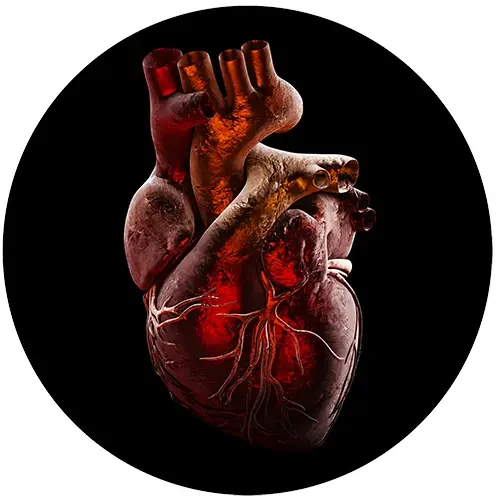No symptoms
Overview: Many people with hypertrophic cardiomyopathy do not know they have it because the disease may not cause symptoms.
Background
In cases where there are no signs and symptoms, HCM often goes undiagnosed and treatment is not needed. These people are able to lead lives with no significant problems.
It's great to be asymptomatic. But pay attention!
If you are asymptomatic (no symptoms or have few symptoms), congratulations! That's wonderful!
If you are in this lucky group, you still need to pay attention to HCM. Symptoms may begin to occur. Symptoms and health status can vary from day to day. It is important to stay vigilant and be aware of lifestyle changes you may need to make. Know how HCM affects your body and how it may affect family members.
Be alert for warning signs and have a plan in place. Some things to watch for include:
- light-headedness
- unexpected shortness of breath
- heart racing
- chest pain that does not go away with rest
- fainting or nearly fainting.
If any of these occur, you should immediately talk to your doctor.
Be prepared
Compile your medical records and keep them in a place that you can access immediately when needed. Follow a heart-healthy eating plan by limiting salt, saturated fat, sugary beverages, alcohol, and tobacco usage. You should drink plenty of fluids, especially when you exercise. For most people with HCM, light to moderate exercise is healthy. If you are well and have no symptoms, you should still see your doctor for regularly scheduled checkups.
Sudden cardiac arrest is the most dangerous consequence of HCM. Be sure that loved ones, co-workers, friends, and those around you know how to do CPR. Performing it in an emergency can keep blood circulating until a normal rhythm can be restored. Also, make sure that they know where AEDs (Automatic External Defibrillators) are so they can use them if necessary.
Harvard Health Publishing. (2011, April). Hypertrophic cardiomyopathy: Optimism tinged with caution. Retrieved December 4, 2020, from https://www.health.harvard.edu/heart-health/hypertrophic-cardiomyopathy-optimism-tinged-with-caution
HCMA 6/2021












